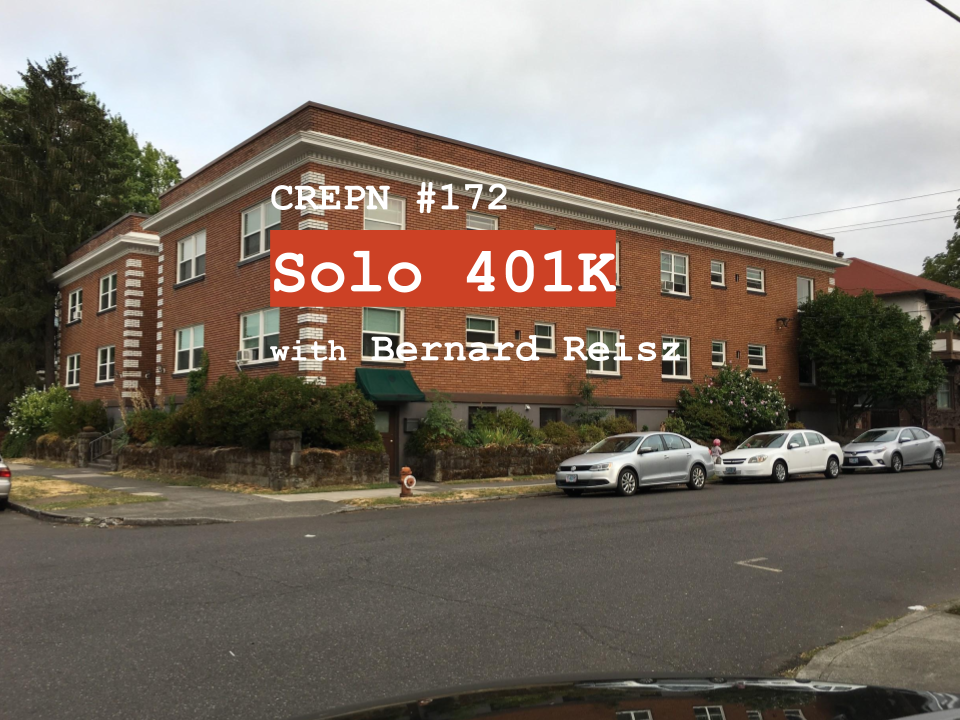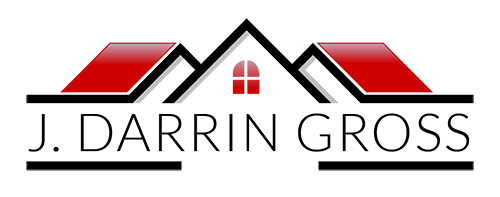
29 Nov CREPN #172 – Solo 401K with Bernard Reisz
Do you have an 401K checkbook? Are you self employed?If you are self employed and do not have a 401k, there is still time to take advantage of the beneficial 2017 tax law to substantially fund for your retirement.
If you are not able to take advantage of a self employed 401k, check out our IRA episode for the options available to you: CREPN #171 – Checkbook IRA with Bernard Reisz
Bernard Reisz with 401kcheckbook.com provides the education, structure and tools to help investors who are looking to take control of their financial future.
2017 Tax Law Benefits
The 2017 tax code capped personal deductions for state and local taxes expensed on federal tax returns at $10,000. This will likely increase your tax liability for 2018. However, you can take advantage of the new ways to lower your tax liability if you fund it before the end of the year.
If you are in business and generating profits, you can create a 401k for that business. When you fund your 401K, it reduces your taxable income. If your company is set up to match, the match is an expense to the business which again lowers its taxable income.
The Qualified Business Income (QBI) Deduction is a new for the 2017 tax law. It provides up to a 20% tax deduction for any qualified business income up to $315,000. The amount of QBI reduces for taxable income above $315,000 for married filing jointly. Funding your 401K can help reduce your income and maximize the percent of QBI you are eligible for.
Solo 401k
If you have no employees, the Solo 401K is ideal for you to maximize your retirement account funding. The Solo 401k is the ideal candidate for the Checkbook 401K.
Unlike the IRA, a 401K is not required to have a financial institution as a custodian. You are allowed to be the administrator and trustee. There is no requirement for a custodian.
The maximum amount you can contribute to your Solo 401k and deduct from your taxable income is $55,000. If you are over 50 yrs old, you can increase that amount to $61,000.
To contribute the maximum, you must:
- Have net income equal to or greater than your contributions.
- Employee deferral: $18,500 maximum. This can be dollar for dollar of net income your company generates.
- Employer Profit Share: 25% of company net income can be contributed. To get the full $55,000 tax deduction, you will need to have $175,000 net income. If you are an S Corp, you are limited to 25% of the W2 salary.
Either a traditional 401k or a can be used.
Traditional 401K; You receive a current income deduction for contributions. The account grows tax deferred and is taxed at ordinary income tax rates when withdrawn.
Roth 401K: You receive no income deduction. Contributions are after tax, but grow forever tax free. There is no tax due when withdrawn.
Personal loans from your Solo 401K are allowed with few limitations:
- No seasoning required.
- Maximum loan percent 50% of the balance, with the maximum loan up to $50,000.
- Pay back within 5 years with interest to your 401k.
You can set up an entity, LLC owned by your 401K to funnel your investments through. This is ideal for purchasing real estate and provides significant asset protection.
When purchasing real estate inside your 401K, like the IRA, the loan must be non-recourse. Unlike the IRA, your 401K can purchase real estate with leverage and avoid UDFI penalties.
For more go to:
(212)259-9302

